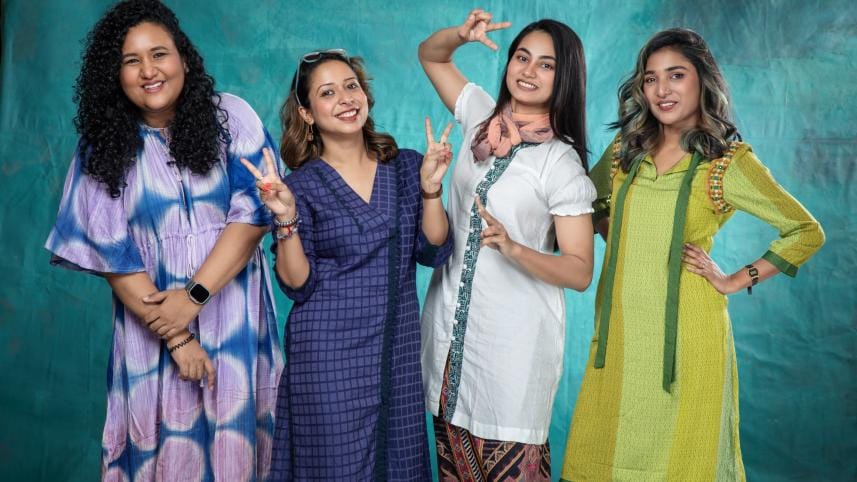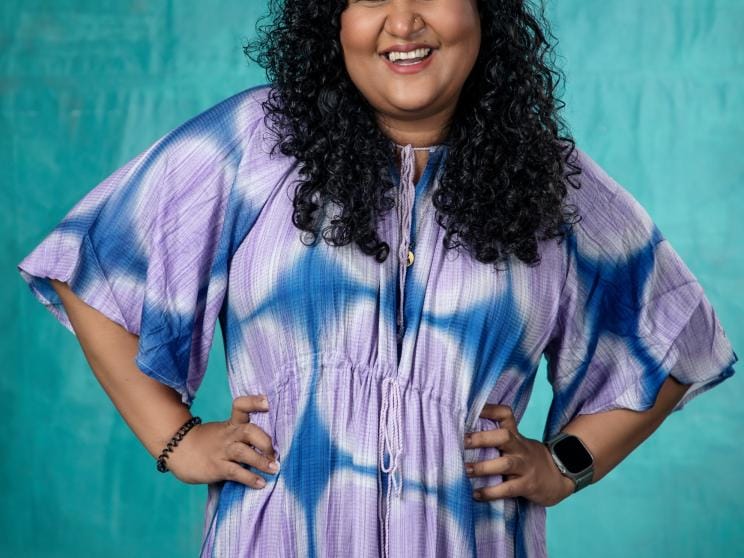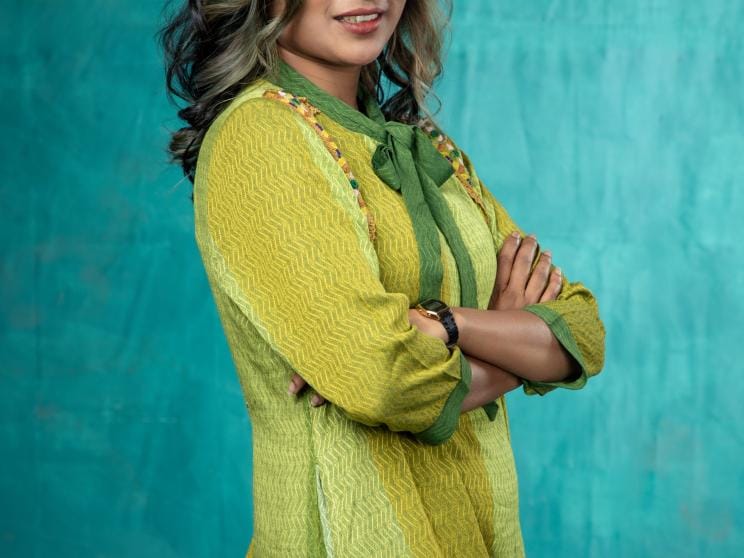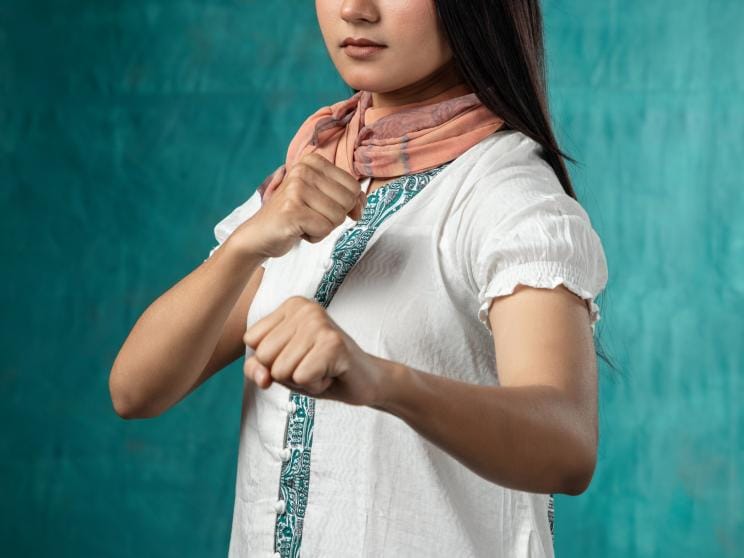Redefining the professional landscape: Women pioneers in male-dominated industries

In an era where the push for gender equity and inclusivity has become a central theme across various sectors, Star Lifestyle brings forth the stories of four incredible women, who are thriving in fields traditionally dominated by men. Their journeys inspire not only women but also societies to strive towards inclusivity, equity, and recognition of talent beyond gender constraints.

Raka Noshin Nower, filmmaker and founder of Studio Yellow Something Limited
I had to prove myself repeatedly. I was a second assistant director at a production house for a long time and back then, I didn't have to think about logistical matters such as the rent, electricity bill, production cost etc. Nevertheless, I always wanted to have a production house of my own, but people I talked to kept demotivating me and suggesting I shouldn't think about taking on such a massive amount of responsibility lest I fail.
Am I not doing well being second-in-command? – they asked. I knew I was capable of doing something more. So, on 28 March, 2022, I resigned, surprising everyone, even my boss, who was shocked by my decision. I didn't have a job for three months but I wasn't bothered by it.
I feel like women let themselves be dependent upon learned people most of the time. So, I took charge and taught myself how to run a company. I self-studied, talked to lawyers and resorted to opening Studio Yellow Something as a limited company. Finally, on 21 August, 2022, on my birthday, I started my own company.
From hiring employees to renting out a space, I did everything on my own. Even when I tried to rent an office space, the owners kept asking me to bring either my husband or boss. I was baffled by this illogical demand as I had neither. If I were a man, I don't think anyone would have questioned me or asked to see a male custodian with me. It is very difficult for single women to find a house or office space for rent.
Luckily, I found a very beautiful space and a cooperative house owner who understood my situation. Then I began my journey.
At first, no one was willing to take me seriously, at least in advertising. Even after having a decade-long career and a channel full of commercials, I had to start from scratch. Initially, everyone questioned my capability and wasn't willing to give me the first project. I came a long way in these two years but the beginning was an uphill battle. I had no reference beforehand. I came this far only because of my hard work, dedication, and determination.
That said, I know every industry has its good and bad sides, merits and demerits and we have to co-exist among them. Though I have struggled a lot, and faced many challenges, I am incredibly grateful for the support from the male professionals in this industry, which was truly unexpected for me. I don't think every man in this industry, or even in our world, is bad or unsupportive. Your experience lets you see the good, bad, and ugly, and teaches you how to differentiate between them.
I pray every woman who is working in this industry will have confidence in themselves and I want to be someone who helps them to have a smoother and more inclusive journey.

Sudeshna S Chowdhury, founder and principal architect of Studio.O
I am an architect by profession and after I got my license, I started working on interior projects. Gradually, I realised that interior designing is something that I truly enjoy and I want to take on more interior design-related projects. This is how my brainchild Studio.O came to be.
I would say architecture is male-dominated and the architects I have come across who are successful businesspeople are mostly men. Mostly because the biological clock and career clock move simultaneously. There are a few young female owners in this really time-consuming profession.
Architecture and interior design, like many sectors, present a unique set of challenges for women, especially when it comes to leading and managing roles that traditionally have a male majority, such as carpenters, masons, and other craftsmen essential to bringing design visions to life. I have never seen any women working in these roles; men mostly are seen working as craftsmen. Most of the time, we find women not working as electricians or builders, but as only cleaners. It would be so nice to some change in this part of our field.
I have seen that people tend to expect seniors or men as architects, not a young female. Gaining the trust of my clients was challenging for me.
I lost my father when I was very young and I had only my mother and sister in my family. Growing up, I felt like there should not be any difference between men and women — I always consider myself as a person.
After I got married, I have the same supportive environment in my home and my own workspace. My husband had been incredibly caring and helpful towards me, so has been my professor, mentor, and now firm/ project partner, who is a man.
However, some obstacles cropped up when I was expecting. I could not tell a few of my clients, in case they thought I would not be able to deliver the project on time. This is maybe one challenge that only a woman would face.
There are countless inspiring business women out there, and so much to learn.

Tasnim Mortoza, co-founder and CEO of Shapla Tax
The journey of Shapla Tax started with me and my friends, building websites for other people. We have this tendency to get everything custom-made and when it comes to receiving tax solutions, the case is no different. Also, I always wanted to have one software from where I can serve a lot of people.
Therefore, I started with procurement. I used it in six different factories and multiple start-ups. It was going well but I soon realised people do not like their money transactions to be tracked. I thought how can I make this process simpler?
So, I ended up building Shapla HR software which helps with leave, attendance, and payroll — all HR-related matters. We tried to work with more details and soon realised that the payroll process is very tricky. There are no strict rules and you do it as you want to.
Imagine you have opened a new company but there are no accountants. Who is going to deal with the payroll? Where will you go for a structure? We thought of working with tax and my team members built an AI-powered tax calculator. People started using it and then we thought why don't we help them with paying taxes?
In 2022, we started Shapla Tax, which provides innovative solutions to streamline the tax calculation and filing process, making it more accessible and user-friendly for individuals and businesses alike. We are not just about filing taxes; we are about empowering individuals and businesses with the knowledge and tools they need to thrive.
That said, I don't know any field that is dominated by women. Whether it is my field, which is engineering, or any other field, you will not find any fields solely led by women. There are many software companies I have seen where the ratio of men is more than women. I am a software engineer myself but I hardly see any female engineer leading a software firm. Disregarding my field, how many law firms in Bangladesh will you find, which are led by women? Close to none.
It was not like I didn't have many people to follow or go to for advice or consultation. My major issue was that I didn't have enough women or any female figures in my industry who would be able to guide me.

Humaira Akhter Antara, karate practitioner and athlete
I started learning karate because I wanted to be independent. Growing up, I did not have a father. I had only my sisters and mother in my family. As the elder daughter of my family, I had many responsibilities to fulfil. People helped me to study in a madrasa but soon, I realised I could not live my life like this — taking help and depending on other people.
So, I thought I should do something to support myself. We lived in Paltan and the National Sports Council (NSC) was located near our house. In NSC, games such as martial arts, gymnastics etc., were taught and I felt motivated to learn them. I thought I could empower myself by engaging in these sports. So, I started training in martial arts. Initially, similar to every other woman in our society, my journey was also met with scepticism and hurdles.
Nevertheless, I learned about karate and how I can join the military forces. Though people may not value sports such as karate, we can bring medals and awards for our country if we are given the chance. Even our prime minister appreciates and awards such individuals. I always wanted to do something for my country and so, in the spirit of this dream, I continued my training.
I felt like I was born to learn karate. I trained with boys and people did not take it well. They used to talk negatively about me as sometimes, I had to train long after our session was over. These rumours were hurtful but I did not let it affect me. Finally, when I won the gold medal at the South Asian Games in 2019, the rumour mill stopped automatically and praise poured in for me from everywhere – even from the people who had undermined me.
Two people won gold medals with me and among them, one was a girl and another a boy. So, if you look at the ratio, girls have done better than boys. After that, I have seen positive changes taking place and I know girls will keep coming forward and proving themselves.
In Frame: Raka Noshin Nower, Sudeshna S Chowdhury, Tasnim Mortoza Humaira Akhter Antara
In collaboration with TAAGA



 For all latest news, follow The Daily Star's Google News channel.
For all latest news, follow The Daily Star's Google News channel.
Comments